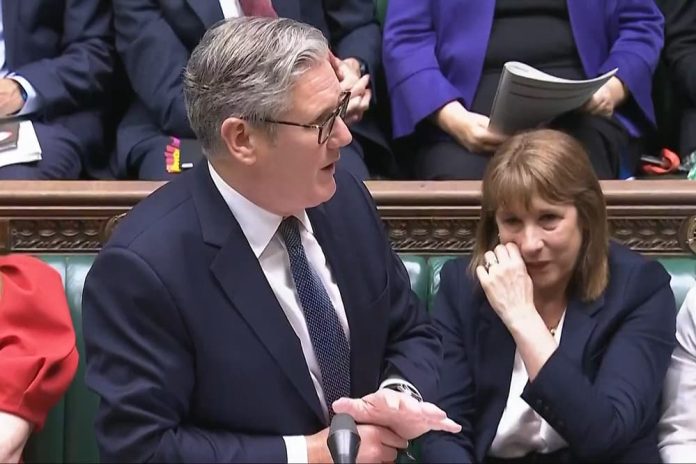UK PM Keir Starmer was forced to defend his chancellor on Wednesday as fierce accusations over the collapse of Labour’s social security bill appeared to reduce Rachel Reeves to tears and sent markets into turmoil.
Ministers said the government’s abandonment of the centrepiece of its welfare reform, a necessary move to prevent a crushing defeat by rebel MPs, would have long-term consequences for the government’s spending priorities. Reeves, already under pressure, was criticised for a political miscalculation in trying to push through the cuts amid deep discontent among backbenchers. As a result of the U-turn, she will now have to find £5 billion to fill the budget gap through tax increases or other spending cuts.
After the chancellor was seen in tears during questions to the prime minister, Downing Street was quick to say she’d stay in her job and hadn’t resigned. “The chancellor is not going anywhere,” the minister said.
The collapse of the UK financial centre
The London Stock Exchange posted its worst IPO performance in 28 years, with companies raising less than £200 million in the first half of 2025. The drop was due to an outflow of issuers, a shortage of new listings and an increase in the number of deals to buy out British companies, with 48 such deals since the beginning of the year.
The situation was also exacerbated by reports that AstraZeneca, the UK’s largest company, plans to move its main listing to the US. The company’s CEO, Pascal Soriot, explained this by citing disappointment with the UK’s healthcare regulatory regime and concerns that the British pharmaceutical industry is lagging behind the US and China.
The departure of AstraZeneca, whose market capitalisation exceeds £100 billion, could be a blow to investor confidence in the British market and trigger a chain reaction of other issuers leaving, the agency notes. Wise, Flutter, CRH and Indivior have already taken similar steps.
